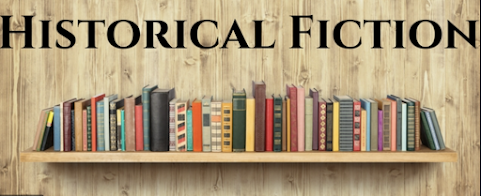I know, I know, this post has been done before. Many times. I just can't help myself though. It's a real curiosity for me, how other avid readers feel about this topic. I have thought a lot about it over the years and at the risk of sounding like the mushy middle my conclusion for myself is this......they are both worthy of respect. But the e-reader is just more practical. So I will elaborate and explain my thoughts.
I am a Gen Xer. That group who always has one foot in the technology world and one foot in the old school, 80's, had to use Encyclopedias for reports world. So it's no surprise that when e-readers came out I was hesitant. I actually remember the first time someone mentioned theirs to me that I was like, "what? Who would even buy that thing? No pages to turn? No book smell? No going to the LIBRARY??? It was unthinkable. Then I bought a paperwhite during a Black Friday sale and oh my goodness....the possibilities. I could get any book I wanted immediately. You could access a definition with a fingertip. Want to see the sequels for the book? Done...just click on the digital bookstore. Want to know exactly how many minutes left until you finish the book, according to your reading speed? Right there on the screen. It was awesome. Until one day I realized the e-book I really wanted to read was going to cost more than a used copy or getting it for free from the library. So I bought the paperback book. And I changed my mind again.
Sitting on the couch holding the book, turning the pages and getting lost in the writing was familiar. Flipping throughout the book easily back and forth was more convenient than having to scroll or try to bookmark everything I wanted to see. I'd missed real books. Having a smart phone with all the apps and texts and social media made online reading sometimes feel like just another screen. Not to mention the constant "suggestions" of what to read next gave me anxiety. So many books I hadn't read were just sitting there taunting me. I began to develop the worst case of fear of missing out for a book nerd.
The book was comforting and soothing. Did I really want to keep my Kindle or not? But by the time I finished the 700 page tome of small print I knew I just couldn't do this all the time again. Especially with my aging eyes. So I made a personal decision: most of the time I would choose to read on my Kindle. But when I was feeling nostalgic or when the book was not on sale for a reasonable online price, I would choose the real paper book. And this is how I've done it ever since.
Truth be told I do miss books and libraries. I've posted before about how screen time is affecting our children's ability to read chapter books and to concentrate for long periods of time. But in reverse, I think screens are great for the older population who aren't struggling with beginner reading skills. Being able to have added light, increase text size, or change fonts when needed is invaluable. As I get older there are books I won't even attempt in paperback form because I have to read them with a giant book light draped around my neck or sit right next to a window. And don't even get me started on reading in bed at night. My husband (who hates reading books) wouldn't be able to sleep with the lamp on. When I'm on my e-reader he doesn't care because I use the dark light mode. It's a win win for us both.
I hope libraries and bookstores never go away completely. I hope people will still be able to browse used bookstores looking for paper treasures. But for me it's just not practical anymore to only count on the real thing. Maybe some day they will make an e-reader that feels more like a real book.
Which do you prefer? E-readers or the real deal? Why? I want to know!


